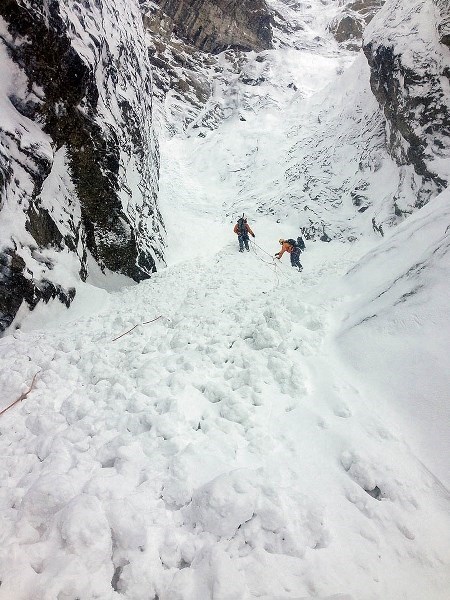BOW VALLEY – Rescuers are urging backcountry enthusiasts to play it safe in the mountains – or avoid the backcountry altogether – amid concerns an accident would put a heavier burden on Alberta’s health care system during the COVID-19 pandemic.
With the new coronavirus creating unprecedented challenges for the health care system, rescuers in Banff, Yoho and Kootenay national parks and in neighbouring Kananaskis Country are asking people to make conservative choices and to keep their personal risk to an “absolute minimum.”
Avalanche Canada officials say “now is not the time for an accident.”
“The current pandemic is overloading the medical system and could affect backcountry rescue response,” according to Avalanche Canada.
On March 20, there had been 49 cases of COVID-19 reported in Alberta over the previous 24 hours, bringing the total number of people with the virus to 195. There are now two confirmed cases in the Canmore area, with Banff still reporting none, according to the provincial government website. There have been 20,165 tests completed throughout Alberta so far.
Parks Canada asks backcountry users to be “extra vigilant” to the possibility of any type of incident that could add stress to a health care system “already under huge pressure.”
“This could be a time to avoid the backcountry,” according to the March 20 avalanche bulletin for Banff, Yoho and Kootenay National Parks.
“If you choose to head out, every effort should be made to avoid injuries. We encourage you to take all precautions necessary to safeguard the health and safety of your group and others.”
In Banff, Yoho and Kootenay national parks, the avalanche danger is currently rated as moderate in the alpine and low at treelike and below tree line.
A moderate rating means there are heightened avalanche conditions on specific terrain features, and that human-triggered slides are possible.
Earlier this week, Parks Canada’s mountain safety team was quick to urge all backcountry users to “keep their personal risk to an absolute minimum.”
“Now is not the time to have a backcountry accident, which will stress the capacity of our team and the medical system,” according to Parks Mountain Safety Facebook post.
“Enjoy the fresh air, but please help everyone out by restraining your activities.”
The Kananaskis Public safety team is also asking for the public’s cooperation in choosing activities that are “low risk.”
In Kananaskis, the avalanche danger is currently rated moderate in the alpine and treeline, and low below treeline.
“Users should choose activities in areas that support emergency access and present minimal challenges and/or hazards,” according to a statement from Kananaskis Public Safety.
“Backcountry assistance has the potential to add unnecessary stress to the health care system, put public safety staff at risk ,including to exposure of COVID-19, which could then impact resources to support search and rescue.”
As of March 20, there have been 25 local states of emergency declared in Alberta as the number of confirmed cases of COVID-19 continues to rise.




